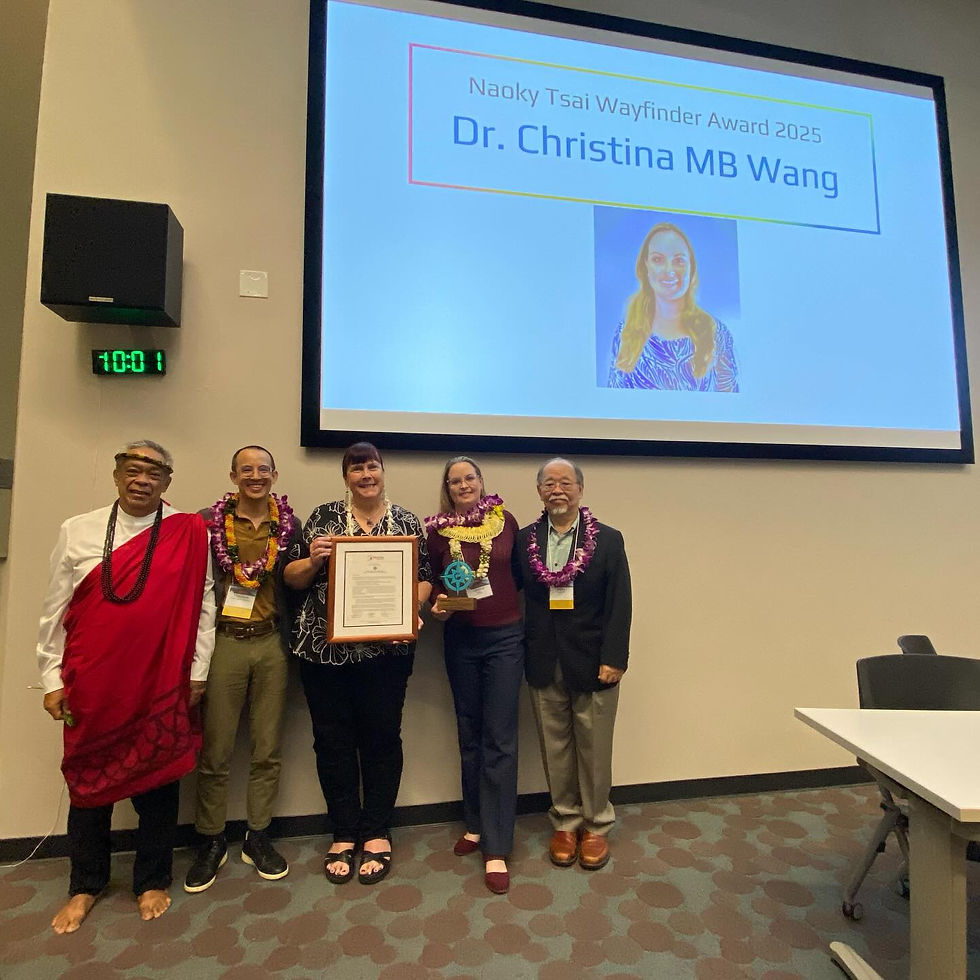MEET KAVIKA PUAHI
- hnakao6
- Jul 7, 2023
- 3 min read

Kavika Puahi currently serves as HHHRC’s Deputy Director of Operations. In 2001, he began working with The CHOW Project, one of HHHRC’s predecessor organizations that administered Hawaiʻi’s statewide syringe exchange program. A graduate of McKinley High School, he went on to procure several associate degrees in computer science.
He supports changing the name of the school back to Honolulu High, but offers that it is a small and relatively inconsquential measure. “A name change alone will not undo the harm done to my people. Historical trauma is still pervasive and has led to the disproportionate number of Native Hawaiians incarcerated and living in poverty,” he said.
When asked about his upbringing and whether he wanted to honor any of his ancestors, living or deceased, he offered the following:
“I was born and raised in Kalihi. A child of public housing, my early years were spent in the concrete jungles of Mayor Wright and Kam IV. I grew up with poverty and violence around me but also family and community. My world taught me what made one truly wealthy, and it wasn’t money. I didn’t have any of that, but I had family, friends, connections, memories, and a place to belong to. However, growing up with a parent that lived with schizophrenia, that wasn’t always enough. I had my dark days and still have the deep emotional scars to prove it. I was lucky, though, I had hope—a gift from my grandma, Elizabeth Lahapa Josiah. She never let me forget that no matter the darkness, love will find its way to me. So, even with all my wars, I still stand here loved and hopeful.”
Kavika started at The CHOW Project as an administrative assistant without knowledge about harm reduction, including access to sterile syringes, as a public health response to curb the spread of HIV. Yet he immediately recognized the benefits for those from under-resourced communities consigned to the margins of civic life:
“Harm reduction was a foreign concept. The idea of providing free sterile syringes to people who use drugs was baffling. This world was unlike any I was a part of before. However, growing up in Downtown and Chinatown, there was one link, those served by the programs weren’t strangers. They were my neighbors, they were family members, former friends, and classmates. And now, I was able to help provide them with what my grandma provided me: hope.”
The father of two, Kavika is also a graphic designer who owns a streetwear brand, Lost Kingdom Klothing, which is “about connecting, perpetuating, and infusing Hawaiian culture into every thread.”
Kavika designed HHHRC’s logo as The Chow Project merged with Life Foundation, Hawaiʻi’s oldest and largest AIDS services organization, in 2018. He states that business college helped him hone his graphic design skills. Here is the story behind the logo:
“The biggest challenge was infusing it with the meaning and spirit of The CHOW Project and Life Foundation as well as the hope of what HHHRC would become. So, I found inspiration in the kalo leaves from The CHOW Project logo, which I also designed, and the etched rock from the Life Foundation logo. The kalo leaves were reimagined as a single forward-facing leaf in the shape of a heart to represent the unity of the two agencies and our goal to love those who were left behind. I also added a small leaf to represent the possibility of growth for HHHRC’s future. The etched rock I imagined being refined into a pōhaku kuʻi ‘ai—a tool used by Hawaiians to prepare food for their families and communities.”
Kavika also answered the following questions from The Proust Questionnaire, popularized by French essayist and novelist Marcel Proust and still used by Vanity Fair magazine:
What is the trait you most deplore in others? The inability to see humanity in others, especially when they are from a different social class, culture, or lived experience.
Which talent would you most like to have? Acting. I love movies and tv shows and always dreamt of acting on screen. Maybe this talent would be more attainable if I actually enjoyed speaking in public.
What do you consider your greatest professional achievement? Dedicating 21 years to supporting the syringe exchange program and seeing it blossom from a program that operated in the shadows to one that now shines a light of hope into those very shadows.
What is your motto? You don’t know what you don’t know, so learn everything.










Why does Retro Bowl College Kavika Puahi believe that changing the school’s name back to Honolulu High is only a small and relatively inconsequential measure?